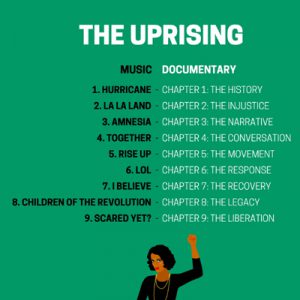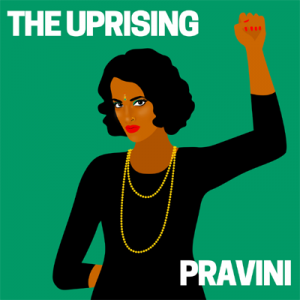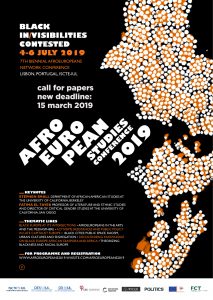Sandew Hira
The Hague, Holland
February 8, 2019
A new form of coup has emerged in 2019. Apart from military coups and invasions by foreign USA and America has invented a new form: setting up a virtual state supported by the imperialist by acknowledging a president that is not elected by the people, seizing state assets and transferring them to this president, and in the final analysis setting up an alternative army.
The facts
The Western media has created an image of the Bolivarian revolution as the ultimate proof of failure of revolutionary politics. I will not deal with these distortions and refer to sources that goes in depth on this issue:
– https://www.globalresearch.ca/venezuela-straw-breaks-empires-back/5667967
– https://venezuelanalysis.com/analysis/14305
I will develop a theoretical analysis of the new technique of imposing colonial/imperial rule on oppressed people.
The classical method
The classical method of colonialism since 1492 has been invasion, occupation, genocide, colonial administration rule with brutal and violent means, divide and rule, using “house negroes” and promoting mental slavery. In the rise of colonialism European nation states have competed with each other in gaining imperial supremacy. Spain and Portugal ruled in the sixteenth century, Holland played a major role in the seventeenth century, France and England rose to the imperial top in the eighteenth and nineteenth century and the United States gained the upper hand in the 20th century. America, who was a colony of England, ruled in a different way than its predecessors. The purpose of colonial rule was economic exploitation: enriching the West at the expense of the rest.
The European states use invasion, occupation and colonial administration as the main instruments of colonial rule. The USA use military intervention often followed by the installation of indigenous elites as rulers and safeguarded by military bases as its main instrument. They don’t set up an own colonial administration as the Europeans did.
Here is a list of military interventions by the USA: https://en.wikipedia.org/wiki/Timeline_of_United_States_military_operations.
Military coups and interventions
Since World War II America has used military coups and military to establish its rule. The military cadres were often trained by the Americans. The generals and officers were in close contact with their instructors and when the times was their they staged a coup and took over the state apparatus.
A military coup aims to take over state power from within. Military intervention aims to topple a regime that can not to toppled from within.
Taking over the state means in practice:
- Establishing a new government and administration: the executive power.
- Controlling the army, police and intelligence services; killing and imprisonment of opposition forces and installing a reign of terror.
- Closing down the parliament (legislative power) or installing a rubber stamp parliament.
- Controlling the judiciary: judges, prosecutors.
- Controlling the communication infrastructure, media and the educational system to impose the narrative of the ruling power and controlling the mind.
- Controlling the economic institutions of the state: central bank, state companies, trade unions etc.
- Controlling the institutions for dealing with the world (participation in international institutions, formal relations with other states).
The anti-colonial and anti-imperialist forces
He biggest threat to colonial rule was the anti-colonial movement. Every act of oppression generated an act of resistance. The struggle of the anti-colonial movement resulted in the twentieth century in the political independence of the former colonies. The classical European colonizers (France, England) lost their direct political grip, but American military might and networks re-established control in an indirect political way.
The triumph of the Russian revolution in 1917 and the ensuing new world system after World War II resulted in a world that was divided in a socialist and capitalist bloc. Socialism had an answer to capitalism: the working classes were in power.
- The oppressed classes (workers and peasants) controlled the government via workers and peasant councils.
- The capitalist economy was replaced by a planned economy: private companies were nationalized.
- The educational system was based on concepts of scientific socialism. Culture and media celebrated socialism.
Socialist states came into being via violent revolution: conventional wars (World War II), insurrection, guerrilla war.
The armed forced are the key to the establishment and maintenance of the state. Taking over the armed forces means taking over the most important element of the state. That is the point of departure for the establishment of the political, judicial and cultural control.
The fall of the socialist bloc
Until 1989 two third of the world population lived in the socialist bloc. And then the socialist bloc collapsed. In 1989 socialism was abolished in Cambodia, Hungary, Poland and Romania. In 1990 Benin, Czechoslovakia, South Yemen, East Germany, Mozambique and Bulgaria followed. In 1991 the socialist system collapsed in Somali, Ethiopia and the Soviet Union. Finally in 1992 Mongolia, Congo-Brazzaville, Albania, Yugoslavia, Afghanistan and Angola followed suit. In less than four years a large part of the socialist bloc just ceased to exist and capitalism was re-established. The largest socialist society (China) re-introduced the market economy but within the political framework of socialism. The same goes for Vietnam and to a much lesser extent to Cuba.
The ideological implications of this collapse were important. Marxism is the theoretical basis for socialism. If socialism collapsed, what should we think of Marxism as a theory of liberation? Where did it go wrong? In struggling with these question new theories of liberation came into existence under such labels as orientalism, liberation theology, postcolonialism and decolonial theory.
There are also practical implications: preparing for socialism meant establishing a Leninist vanguard party to take over the state in a period of social revolution and thus establishing a military wing of the party that can act at the moment of truth and seize state power during a revolution. But if socialism is a questionable answer, what do you do if you take state power: keep the capitalism system in tact? How do you organize for a just social, political and economic system.
In the Middle East a country like Iran provided an answer outside of Marxism: Islamic Liberation Theology. In 1979 the pro-Western dictator Shah Mohammad Reza Pahlavi was ousted from power by a mass revolution led by anti-colonial Islamic theologians. In Latin America an answer was sought in the combination of Marxism, nationalism and indigenous thinking under labels as Zapatismo, buen vivir, pacha mama etc.
New challenges
In countries with a parliamentary system these forces managed to take state power in elections with leaders like Evo Morales of Bolivia, Cristina and Néstor Kirchner in Argentina; Rafael Correa of Ecuador; Hugo Chavez in Venezuela, Fernando Lugo in Paraguay and Lula da Silva in Brazil. Elections made it possible to take control of the executive and legislative branch of government. The most crucial problem however are the armed forces: army, police, intelligence services. Any revolutionary government that has no control of the armed forces will sooner or later end up like Allende: murdered in a violent coup d’état.
But then there is still the judiciary, the communication infrastructure, the media, the educational system and the economic institutions. How to deal with them?
Do you want nationalization of all private properties, or just some. Do you want a planned economy or a combination of market and planned economy? Do you want to bring the private media and cultural institutions that are not controlled by the state under the control of the state? What does independence of the judiciary means? Can the judiciary be independent or can it be used as an instrument of warfare (lawfare).
Political struggle by revolutionary forces within a parliamentary democracy with the old state institutions in tact get a new dimension. In the old context of revolution the focus of political struggle was armed forces: social struggle sooner or later ends up in taking control of the armed forces.
Now it is proven that revolutionary forces can come to political power by elections and the masses of oppressed people is able to understand and act on revolutionary policies by electing leaders that want to deliver on promises for a just and social society.
This brings in a new dimension of political struggle: the election as the platform for social struggle that inevitable have to address the state power. The old elite is now removed from one part of state power. They will react with a reorganization of the power they have in other parts of the state and society, such as the use of private media, parliament and opinion makers to constantly attack the new government and create an atmosphere of crisis and panic, the use of those parts of the judiciary they control, the organization of demonstrations my making use of legitimate concerns of sections of the population that is suffering from economic crisis that is created and maintained by the opposition etc.
Now there is a new element in the struggle: the organization of a coup by taking over not the whole state of elements of the state. Venezuela is the first country where this is being undertaken. What is the mechanism of struggle that is used in this coup? The create an atmosphere of illegality of the current government.
The good, the bad and the ugly
In Venezuela this has not worked despite the fact that the private media are in the hand of the opposition and in a country of 30 million it is possible to bring hundreds of thousands of people into the street for protest. They still constitute a minority that is not able to win elections. In Venezuela the technique has failed, but outside of Venezuela it works in the countries where imperialism controls the narrative of the mass media. The use of lies is an crucial element in creating this atmosphere.
- Elections that are lost by the opposition are fraudulent.
- The masses of the people hold the government responsible for the economic crisis and therefore they have no legitimacy in the eyes of the people.
- The government is brutal and uses violence against its own people.
The power of deceit is in the constant repetition of lies. Thus it is possible to colonize the mind of people who act on false information. Because there is no free press in the west where the principle of multiple views is respected (the views of the Venezuelan people are not aired in the West) it is possible to have large sections of the people who believe and act on this false information: the support the demand for getting rid of an elected government by force.
Another element in the colonization of the mind is the hypocritical framing of politics as a choice between the good versus the ugly. The west represents the good of humanity and universal values of freedom and the political adversaries of the west are the bad and the ugly. The framing is constituted by the media and the Western experts/pundits who constantly stress the ugly and the bad by constructing lies based on selective presentation of facts: Maduro is dictator and the people are demonstrating against him. The images shows that.
Once the framing is established, anything goes. There are no legal of moral limitations on what the good can do against the ugly, because the good is by definition always right. And so international laws and institutions are pushed aside. War and economic boycott are justified. Just anything is possible, however outrageous it is to common sense. You are either for or against Maduro and at the same time you don’t question those who present themselves as good. There is no discussion about principles of sovereignty or hearing both sides of the story.
A new coup d’état: Juan Guaidó
And so the stage is set for a new form of coup. An individual who until recently was unknown to the majority of Venezuelans declares himself the unelected president of the country and immediately get recognition of mightiest country in the world. In fact, he is the puppet of his master: the USA. And now parts of the functions of the state are transferred to this person.
The function of president of a country is conferred upon him. Then the puppet president can exerts his power: he can invite the USA to invade his country. He uses an alternative justice system. A new Venezuelan Supreme Court now functions in exile that supports this president. Its 33 jurists live in the U.S., Panama, Colombia and Chile. Every 15 days, they hold court via video conference. It has sentenced Maduro to 18 years in prison.
The economic assets of Venezuela that are outside of the country and under direct influence of the West are brought under control of the puppet president: the Bank of England refuses to return gold that belongs to the Central Bank of Venezuela and thus operates within the economic boycott policy of the puppet president. The bank accounts of Venezuela in the USA are handed over to the puppet. It block $7bn in assets and results in $11bn of lost export revenue over the next year.
But all this are part of a coup that ultimately needs a military component. As Mao Zedong says: Political power grows out of the barrel of a gun. An so there are frantic attempts to split the army. If this does not succeed the next step is the organization of a military intervention. But the result is uncertain. In the storyline of the good versus the bad a military intervention immediately produces the desired result: the masses of Venezuela will welcome the liberators with open arms. Given the experience in Iraq, Afganistan and Vietnam the outcome might not be so certain, so the military intervention might me more of a threat than a reality. Then the next stage is to organize armed resistance by a mercenaries and fomenting a civil war in the hope that this will tear the country apart and eventually will lead to the downfall Maduro.
The new coup scenario is mind blowing for people with decency, common sense and feeling for justice. But is a logical outcome of a decay of the old imperial world system.
A long view of history
The 21st century if the scene of the downfall of American imperialism. The Spanish and Portuguese empire lasted for 325 years from 1500 till 1825 (more or less). The Dutch empire lasted 350 years from 1600 till 1950. The French empire lasted for 310 years from 1650 till 1960. The British empire lasted for 360 year from 1600 till 1960. The year are not exact time markers but give a sense of the duration of the empires with each empire have its prime might in different centuries.
American imperialism came to prominence at around 1900 and reached its peak fifty years later when it rise from the ashes of World War II to global power. After the demise of the Soviet bloc liberal theorists like Fukuyama argued that history came to an end and capitalism has triumphed indefinitely. But the rise of China as a super power poses new challenges. Henry Kissinger argues: “We have been dominant in the last fifty years. They have been dominant in 1800 of the last 2000 years.” Conservative political scientist Graham Allison says: “The past 500 years have seen 16 cases in which a rising power threatened to displace a ruling power. Twelve of those ended in war.”
We are living through an era of the decline of an imperial power that is part of colonialism and the rise of a new world order in which countries that have been under colonial influence are being liberated and take on a new role. The US empire is being challenged in every part of the world.
In Latin America the Cuban people were in the forefront of fighting American imperialism, who never succeeded in establishing regime change in Cuba. The rise of revolutionary movements for change challenges the power of the American backed old elites and Venezuela is at the forefront in leading these movements together with Bolivia.
In the so called Middle East the coalition of the apartheids regime of Israel with the corrupt dictatorships of Saudi Arabia and Egypt is the cornerstone of US policy and they are challenged by the struggle of the Palestinian people. Iran is a major anti-colonial force in this region and a leading supporter of the Palestinian liberation struggle.
And alongside the resistance against imperialism comes the rise of China as a new superpower and the old tension between the West and Russia that challenge American hegemony.
Any conflict in the world is now a complex relation of local struggle with an global and historical dimension. The struggle in Venezuela is not just about a controversy between Maduro and Juan Guaidó. It is not only about the struggle between the oppressed Indigenous and colored population and the old white-skinned elite in Venezuela. It is not simply the age-old fight of the colonizer and the colonized. It is part of a new changing world order in the era of decline of American imperialism.
Therefore it is a duty of every progressive person who wants a world of peace and justice to take sides in the struggle in Venezuela, because it is part of a wider struggle for peace and justice. We need to defend principles of honesty and integrity in media coverage and hold on to the principle that both side should have equal hearing and fight the colonization of the mind. And especially for activists in the global north who are enduring a daily bombardment of misinformation about what is going on in Venezuela, this is the time to show if you understand the historical dynamics of colonialism and imperialism: do the right thing and mobilize against military interventions and economic boycotts.



